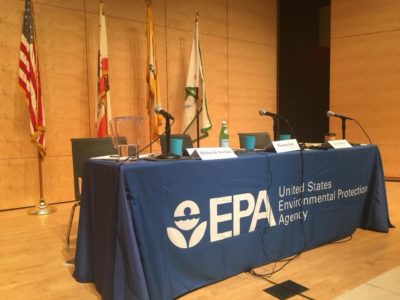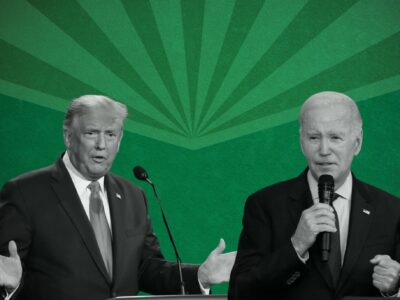Administrative Law
The Forgotten Constitution
There’s a lot more than the “executive power” in there.
To hear Trump & Co., you might think that the Constitution was one sentence long, with that sentence vesting the executive power in the President. That’s the theory behind his efforts to remake the government – including environmental regulation – single-handedly. But there’s a lot more in there. Much of that forgotten language is directly relevant to the presidential actions that are now shaking the government, including environmental governance.
CONTINUE READINGThe Color PURPA
A Win for Solar– And a Glimpse of Life After Chevron
The majority in a recent case — an Obama appointeet and a Trump appointee — ruled in favor of renewable energy. Even without Chevron deference, they were able to conclude that the statute favored solar producers. And unlike a win under Chevron, this one can’t be reversed by a more conservative agency — it’s etched in stone.
CONTINUE READINGViolations of Free Speech at EPA
EPA employees were within their rights with the dissent letter they wrote.
I know it must be a shock to the Trump Administration that even lowly civil servants — I’m sure they would put the emphasis on “servants” — have rights that Important People like them are obliged to respect. But we still live in a democracy, and as the Supreme Court once said, government employees don’t leave their First Amendment rights at the door.
CONTINUE READINGParsing the 11th Circuit’s “Alligator Alcatraz” decision
Panel majority disingenuously blocks interim relief.
Last week, a divided panel of the 11th Circuit US Court of Appeals stayed the preliminary injunction issued by a District Court halting use of the Everglades detention center the Trump Administration loves to call “Alligator Alcatraz” pending the outcome of NEPA litigation. The preliminary injunction was a bit aggressive — the trial court had …
Continue reading “Parsing the 11th Circuit’s “Alligator Alcatraz” decision”
CONTINUE READINGHouse Natural Resources Committee Holds Hearing on Another Ill-Conceived Permitting Reform Bill
The SPEED Act takes aim at the scientific foundation of environmental review
The proposed iSPEED bill includes provisions that would fundamentally compromise the integrity of federal decision making processes by allowing—or even compelling—the government to ignore scientific and technical information critical to understanding the effects of a federal action and how those effects could be mitigated.
CONTINUE READINGThe Failed Effort to Protect Workers from Toxics: A Labor Day Reflection
The OSHA law called for rigorous regulation. It never happened.
To put it in a nutshell, the political base for workplace toxic regulation eroded along with America’s industrial unions. That deprived OSHA of the congressional support it needed to thrive. In the absence of a union revival, the right of workers to be free from toxic hazards is likely to remain an unfulfilled dream.
CONTINUE READINGCan California Try Again with Vehicle Pollution Limits?
A new Sixth Circuit decision provides encouragement.
In May, Congress effectively killed the most recent efforts by California to clean up its vehicle fleet. Although many people seem to have assumed the contrary, this may not be the end of the road for California regulators. A new court of appeals decision is an encouraging signal that California may be able try again when the political forces in DC are less militantly anti-environmental.
CONTINUE READINGThe Imperious Presidency
Executive Orders by Biden and Trump speak volumes about their perspectives.
It’s not a surprise that Trump has little respect for expertise and immense antagonism toward those he views as his enemies. What’s striking, however, is that way that these attitudes leak into even the most formal government documents, where they shape the official justifications for presidential actions. To borrow a phrase from Justice Scalia, sometimes a wolf comes in sheep’s clothing. But “this wolf comes as a wolf.”
CONTINUE READINGWhich Effects Count?
Conservatives argue that only the effects that they care about should matter.
Not that long ago, conservatives demanded that the government balance costs and benefits. They still do, but with a twist: They demand special limits on consideration of environmental effects. But that makes no sense. Whatever rules we have about costs should apply to all types of costs, and the same with benefits. The result of the skewing the analysis is, not surprisingly, that we get conservative results more often.
CONTINUE READINGWhat Do Bureaucrats Maximize?
New research demonstrates that governments can reduce intractable emissions problems — if they have the right incentives
It’s no secret that Delhi has perhaps the worst air quality in the world, and it’s also no secret that crop-burning in nearby agricultural areas is one of the principal causes (along with topography). But what can you do about it? It’s illegal already, but because crop-burning is a cheap and effective way to get rid …
Continue reading “What Do Bureaucrats Maximize?”
CONTINUE READING













